Handson Workshops
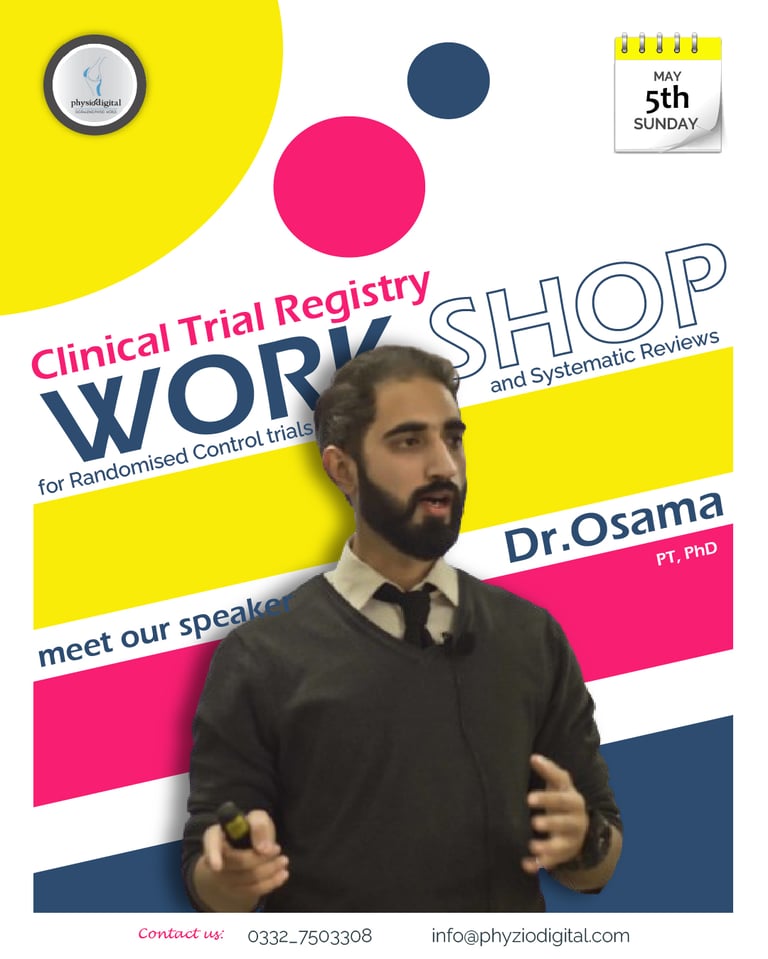

Clinical Trial Registry for Randomised Control Trials and Systematic Reviews
Trial registry plays a critical role in ensuring transparency, accountability, and ethical conduct in research.
By mandating the pre-registration of studies, it minimizes biases such as selective outcome reporting and publication bias, ensuring that results, whether positive or negative, are made publicly available.
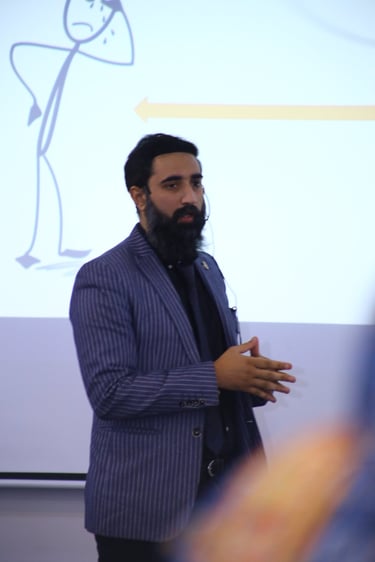
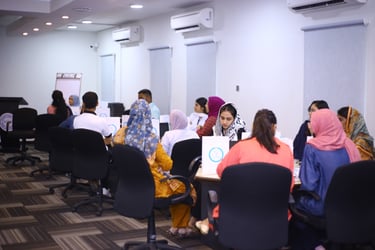
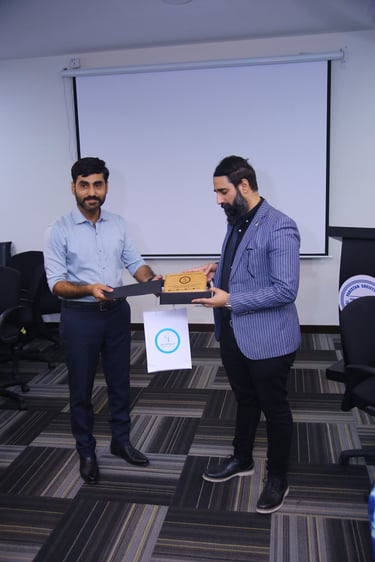
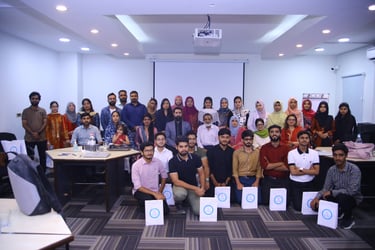





Registries also help prevent unnecessary duplication of studies, saving valuable resources and safeguarding participant welfare.
For researchers, it provides a platform to enhance the credibility of their work, while for participants and the public, it offers reliable access to information about ongoing and completed studies.
Furthermore, trial registries are often a requirement for ethical approvals and publication in reputable journals, underscoring their importance in maintaining scientific integrity and trust.
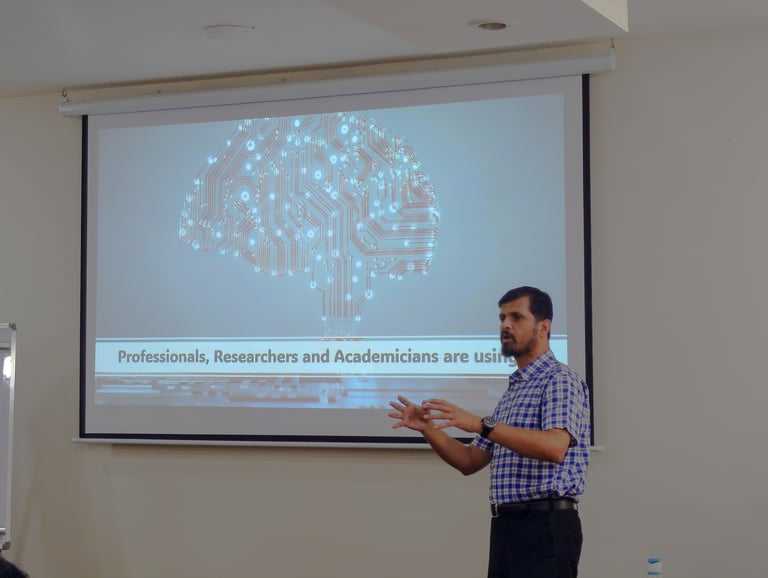

Crash Course on Using AI to transform Research and Manuscript Writing
Understanding AI’s capabilities and ethical limitations in research and writing
AI-powered workflow for boosting research productivity, from idea generation and formulating research questions to selecting an appropriate journal Steps to enhance your research workflow: brainstorming, literature search, data extraction creating structured outlines, manuscript formatting, pre-submission checks, and more
This workshop was a great learning for anyone serious about integrating AI tools effectively to improve their research, writing, reading and presentations .
Crash Course
This session covered essential areas, including:
Remember: AI will not replace humans, but those who harness it will undoubtedly stand out and replace those not using it.
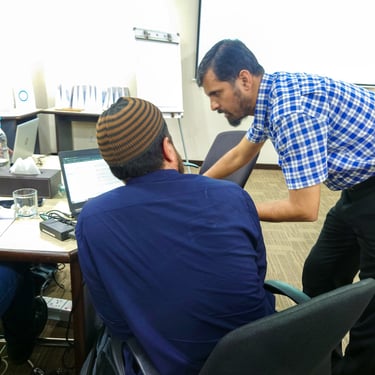
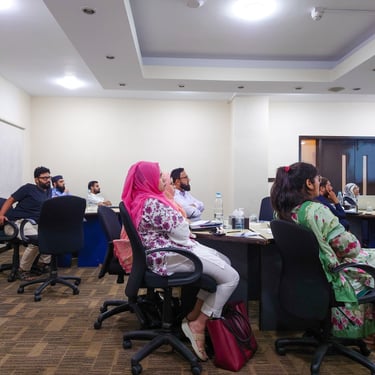
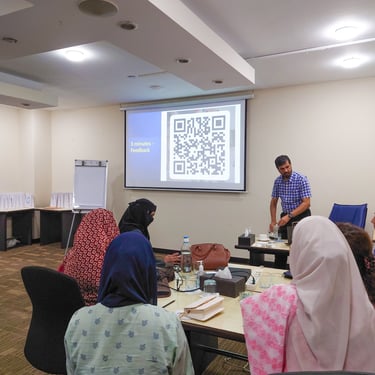
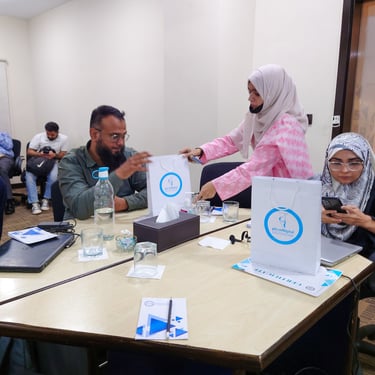
Online Crash Course
This meeting focused on the use of AI tools for research and academic writing, with demonstrations of various platforms and their applications.
The presenter emphasized the importance of using AI ethically and transparently, highlighting its potential to enhance productivity while cautioning against over-reliance on generated content.
Use of AI in Research and Manuscript Writing
In the meeting, Tahniat introduced herself as a physiotherapist with a specialization in cardiopulmonary physiotherapy and the founder of Physio Digital, a research and educational platform offering mentorship programs, research courses, and workshops.
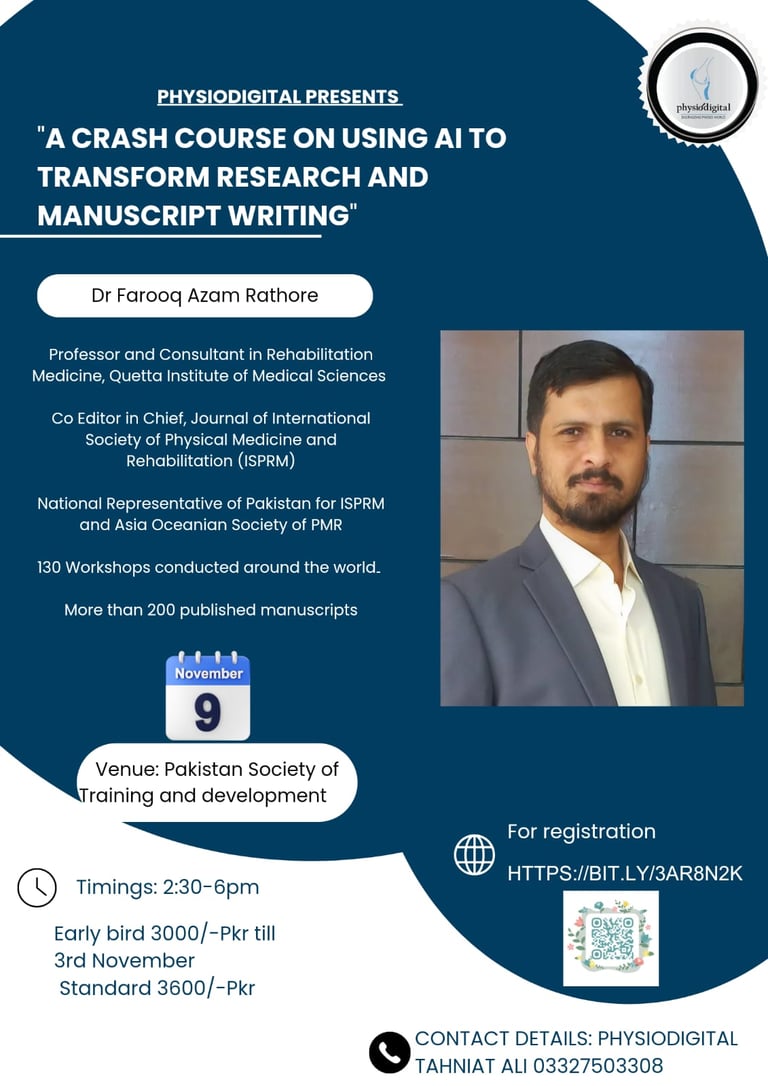

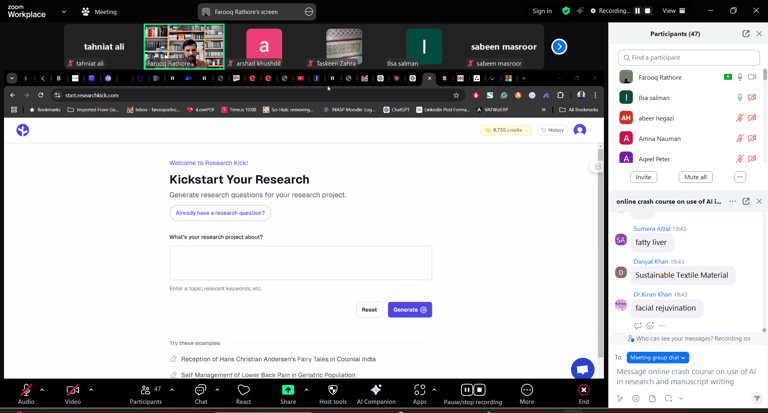
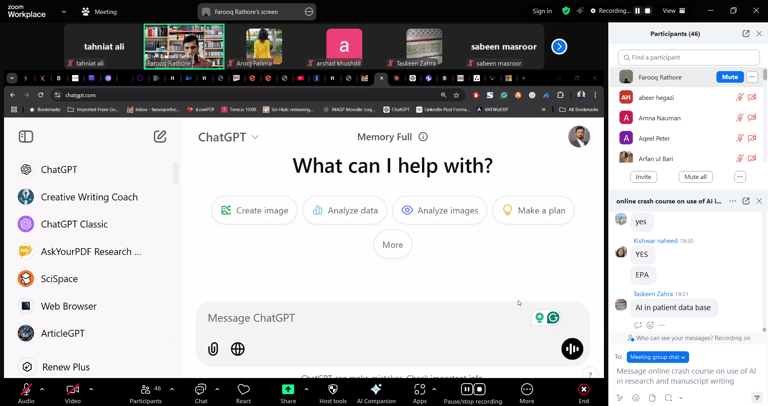
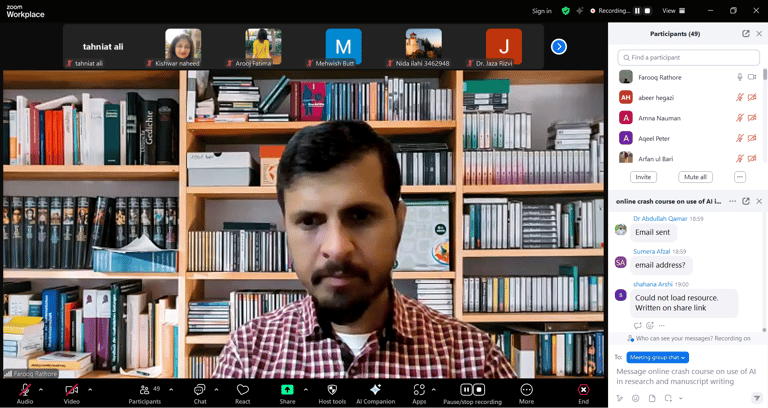



Participants were encouraged to explore and adapt these tools to their specific research needs, while maintaining integrity and responsibility in their work.
Dr. Farooq led a workshop on AI tools for research and writing, emphasizing their transformative potential.
He highlighted the rapid pace of change in the world, with AI tools now being used by academics, teachers, and professionals globally.
He has discussed the potential of AI tools in scientific writing, emphasizing their ability to streamline processes and enhance productivity.
He highlighted the importance of using these tools ethically and transparently, and cautioned against over-reliance on AI-generated content.
Additionally, he suggested tools for tasks like referencing, journal selection, and data analysis.
The key takeaway was to embrace AI ethically to enhance productivity while maintaining integrity in research.
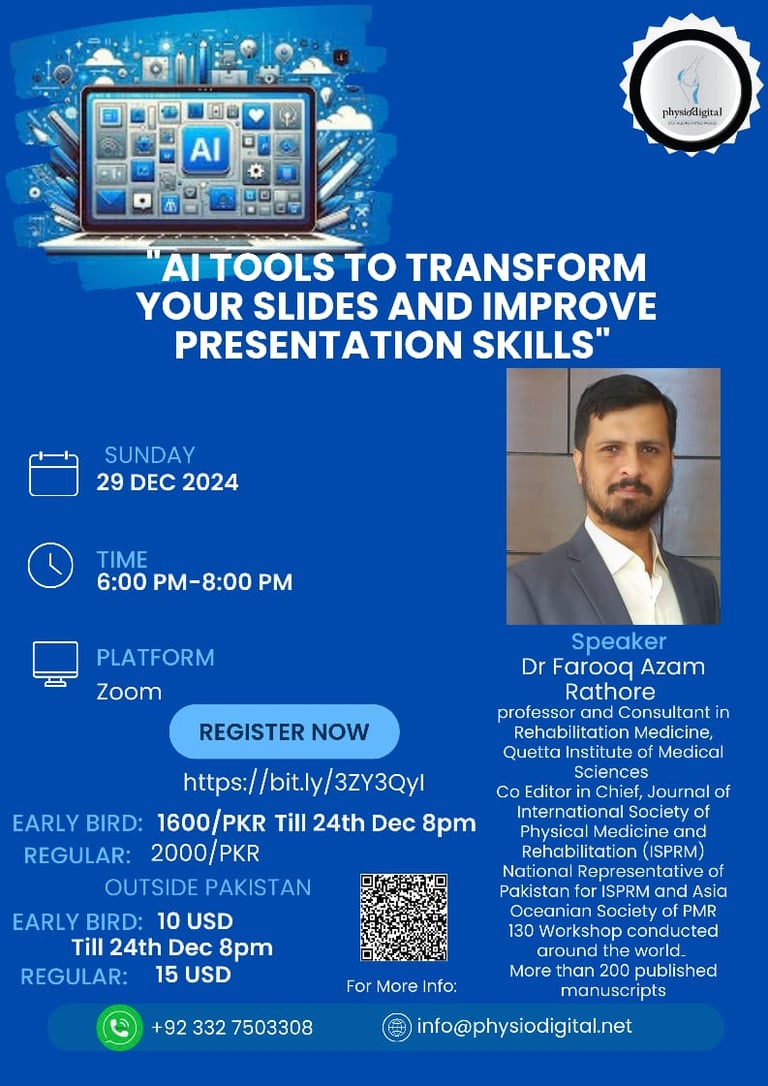

AI Tools to Transform Your Slides and Improve Presentation Skills
Throughout the session, participants were encouraged to experiment with different AI tools, understand their strengths and limitations, and incorporate them into their presentation workflow while maintaining the importance of human creativity and connection.
Farooq led a discussion on the use of AI tools to enhance presentation skills. He emphasized that AI tools can augment human creativity and connection but cannot replace it.
Farooq also highlighted the importance of understanding the value of presentation coaching, which can be costly but is crucial for effective presentations.
Farooq discussed the use of AI tools for creating content, particularly for presentations. He emphasized the importance of understanding three key terminologies: prompt, large language model (LLM), and hallucinations.
Farooq also highlighted the need for better prompt engineering, suggesting the use of AI tools to refine prompts and improve output quality.
He recommended diversifying the AI toolkit and using specific templates when available.
Farooq also stressed the importance of giving a persona to the AI tool and specifying the output format.
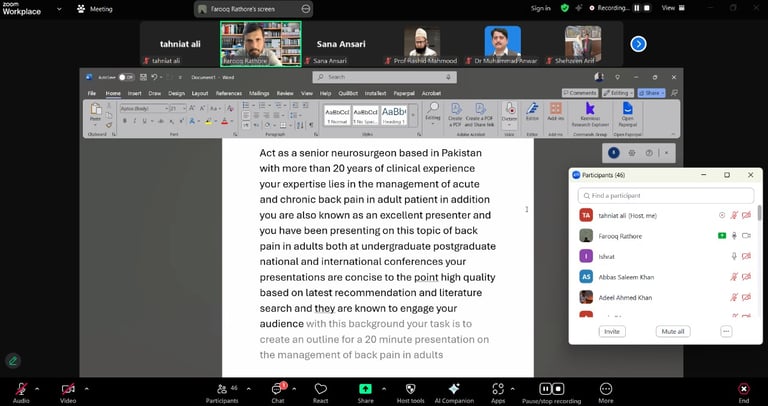

Dr. Tahniat and Dr. Farooq led a workshop on using AI tools to improve presentation skills and PowerPoint presentations.
The workshop covered various aspects of creating effective presentations, including content generation, slide design, and delivery techniques, with a focus on leveraging AI technologies like Chat GPT, Gamma AI, and speech analysis tools.
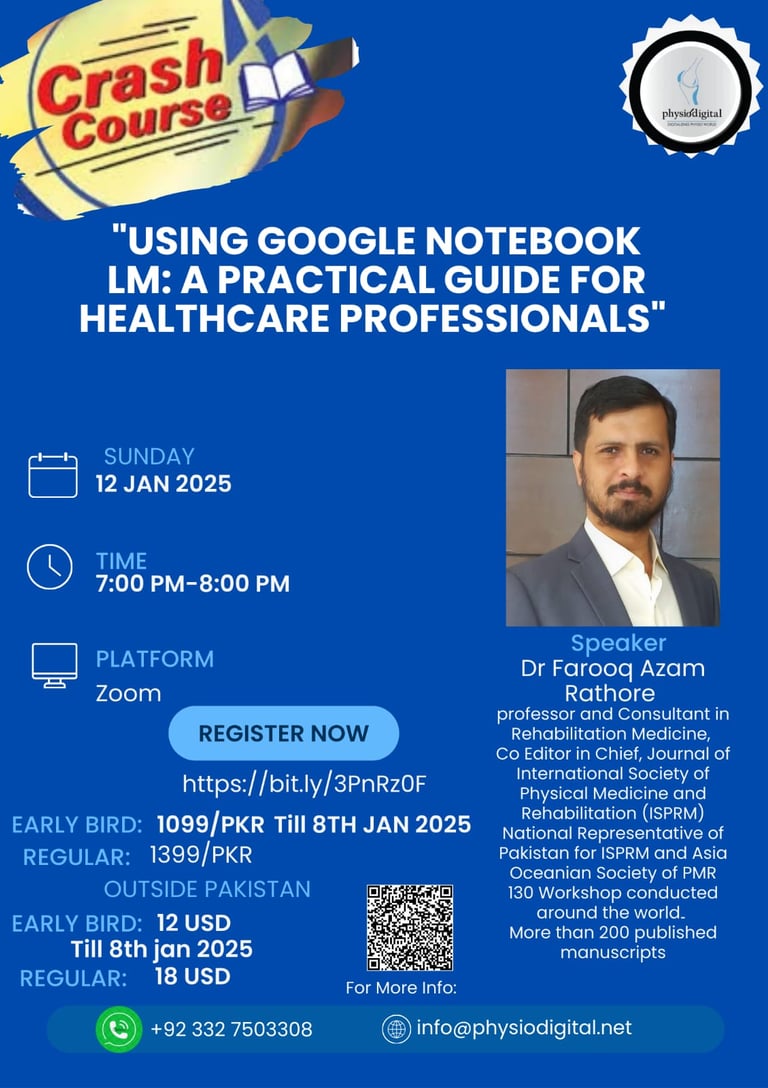

Google Notebook LM
Dr. Farooq led a crash course on the use of Google Notebook, a cutting-edge AI tool designed to enhance understanding of complex topics and synthesize them into one notebook.
He demonstrated its unique features, limitations, and potential benefits for medical teachers and professionals, emphasizing its role as a tool to augment human capabilities, not replace them.
A Practical Guide for Health Care Professionals
The workshop concluded with a discussion on the balance between using AI tools and maintaining creativity and critical thinking skills.
Farooq introduced Google Notebook, a cutting-edge AI tool designed to enhance understanding of complex topics and synthesize them into one notebook.
He highlighted its unique features, such as the ability to handle multiple sources simultaneously, including PDFs, Google documents, Google slides, websites, and YouTube videos.
Farooq also emphasized that Google Notebook is not meant to replace human creativity and connection, but rather to act as a springboard for enhancing understanding.
He demonstrated how to use the tool, including how to upload sources and interact with them.
Farooq also discussed the limitations of the tool, such as the need to re upload updated versions of documents and the inability to directly access articles behind paywalls.
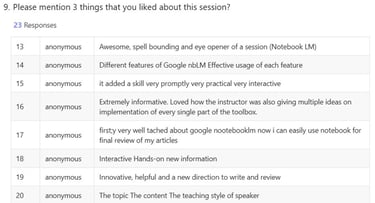
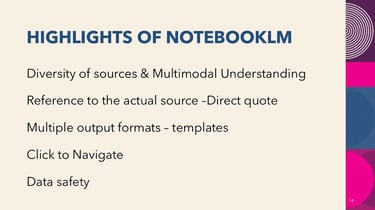
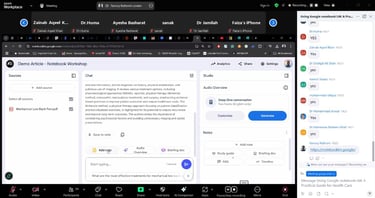
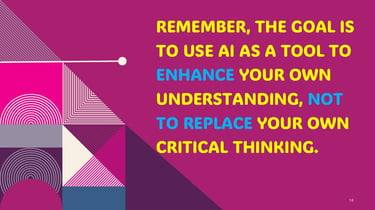




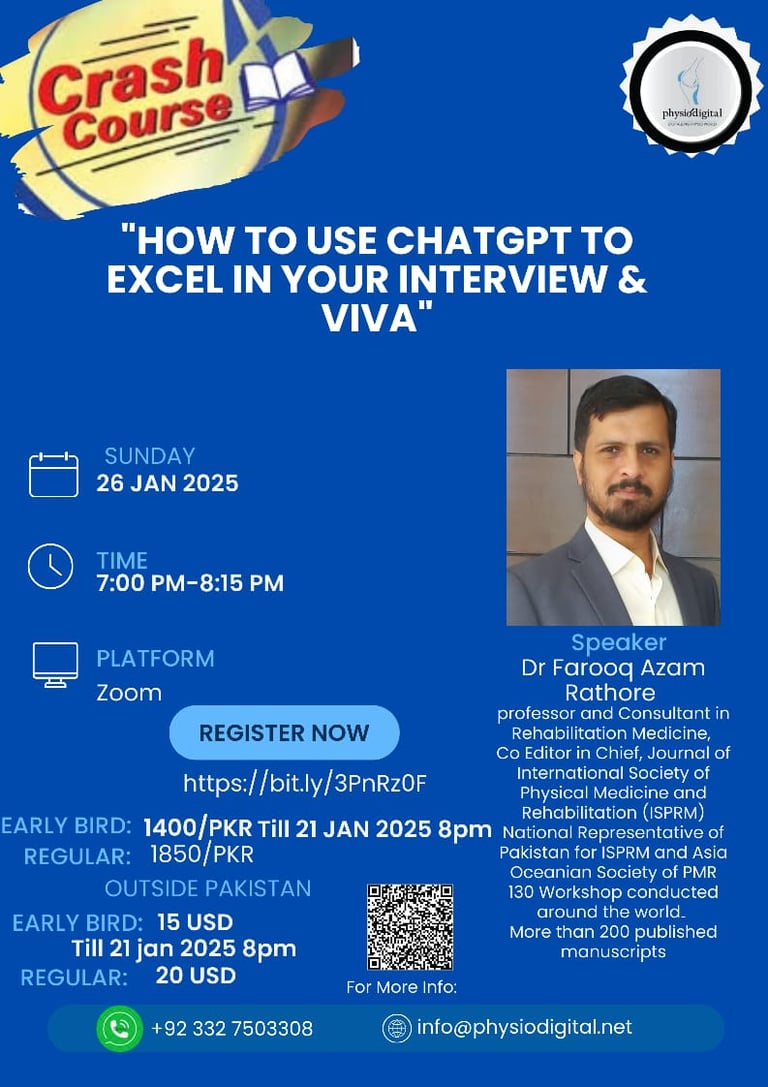

How To Use ChatGPT To Excel In Your Interview And Viva
Dr. Farooq led a training session on using AI tools, particularly ChatGPT, for interview and viva preparation, demonstrating its applications in various scenarios including medical exams and job interviews.
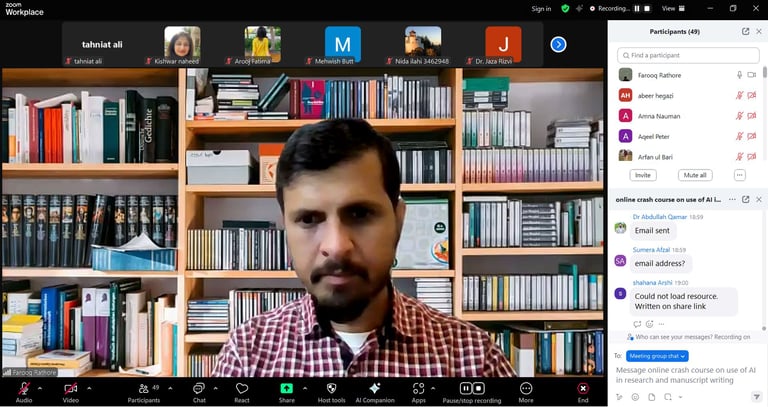

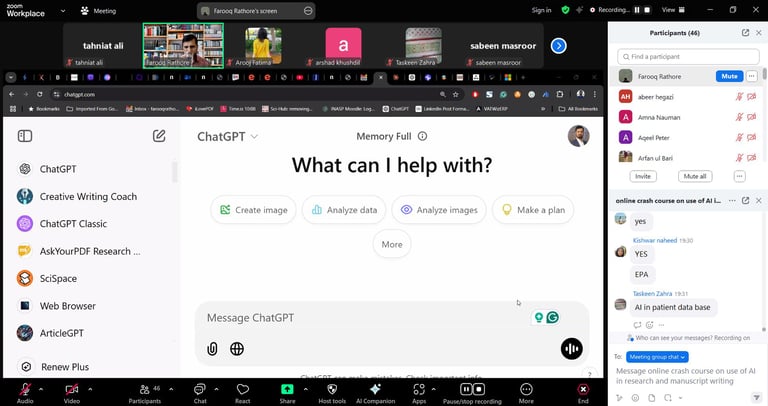

The session concluded with discussions on job-specific requirements, CV optimization, and the future of rehabilitation medicine, encouraging participants to experiment with the introduced tools and share their knowledge.
He showcased the tool's capabilities through mock interviews and viva simulations, emphasizing its cost-effectiveness and ability to provide tailored feedback.
Join the Physio Digital Community Today!
Whether you're a student aspiring to become a healthcare professional or an experienced practitioner seeking to advance your career, Physio Digital is here to support you every step of the way.
Innovation
Advancing physiotherapy through research and education.
Phyziodigital is an online platform with a goal to assists and support health professionals and students in refining their academic, research and practical skills.
Consultancy
Training and Workshops
PhysioDigital (Private) Limited © 2025. All rights reserved.
